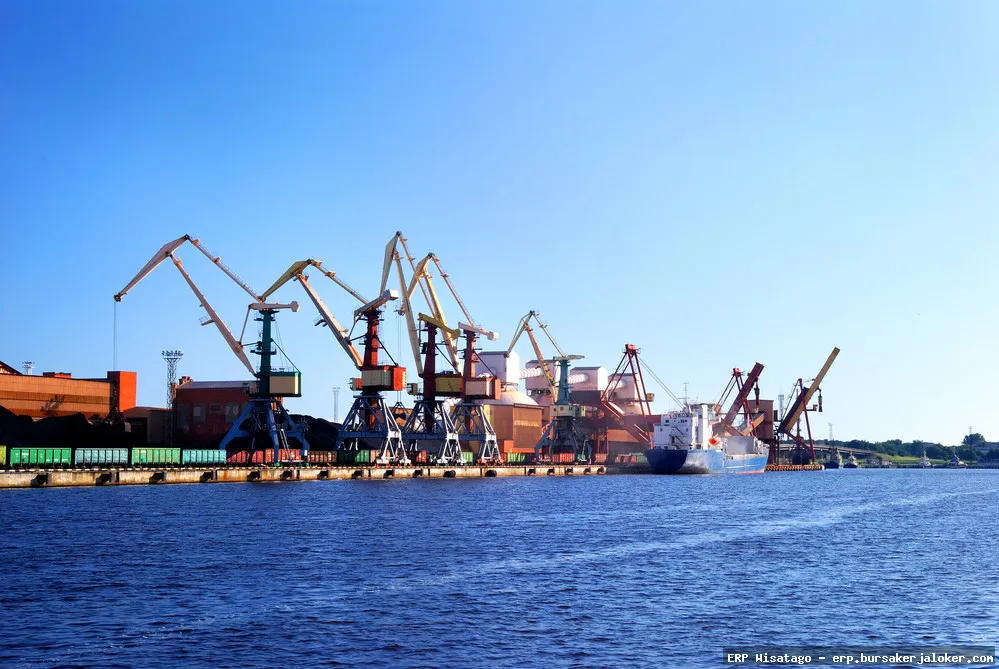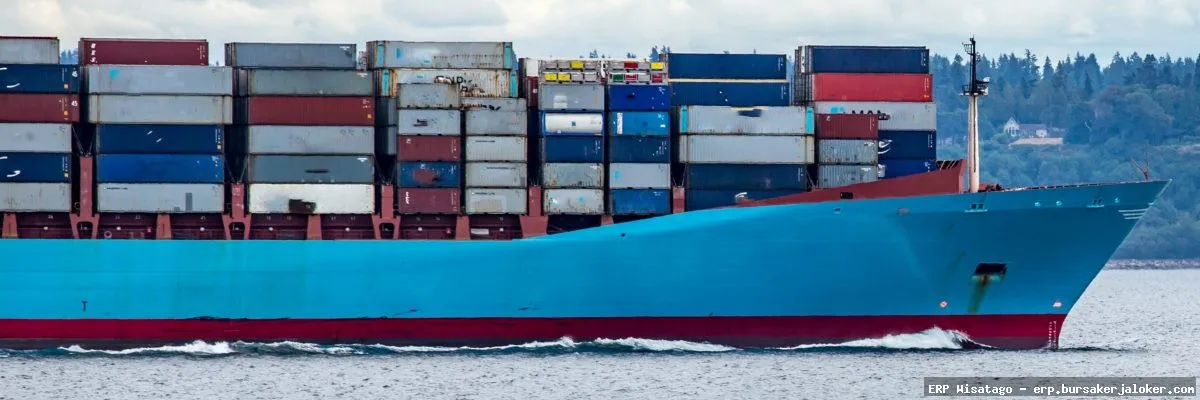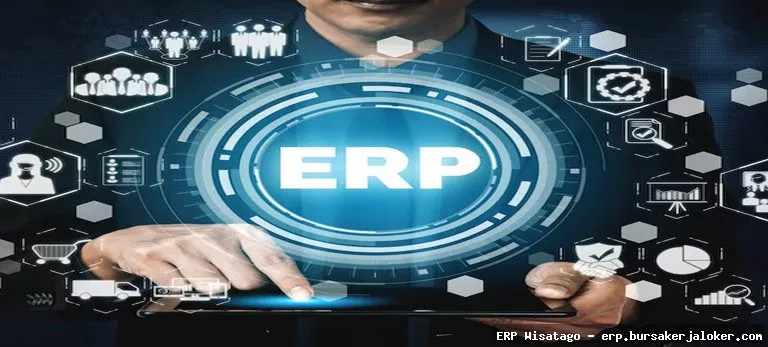The marine industry, a sector as vast and complex as the oceans it navigates, faces unique challenges in managing its operations. From shipbuilding and repair to maritime logistics and port management, the sheer scale and intricacy of these processes demand efficient and integrated systems. In today’s competitive landscape, relying on outdated spreadsheets and disparate software solutions simply isn’t sustainable. That’s where Enterprise Resource Planning (ERP) systems come in – offering a powerful solution to streamline operations, improve decision-making, and ultimately, drive profitability.
But implementing an ERP system isn’t just about installing software. It’s a strategic decision that requires careful planning, a deep understanding of the marine industry’s specific needs, and a commitment to organizational change. Choosing the right ERP solution, tailored to the nuances of shipbuilding, vessel maintenance, or port operations, can be the difference between a successful implementation and a costly failure. It’s about finding a system that not only automates processes but also provides real-time visibility into key performance indicators (KPIs), enabling data-driven decisions and proactive problem-solving.

This guide aims to provide a comprehensive overview of ERP for the marine industry, exploring its key features, benefits, and implementation considerations. We’ll delve into the specific challenges faced by marine businesses, examine how ERP can address these challenges, and offer practical advice on selecting and implementing the right solution for your organization. Whether you’re a seasoned maritime executive or just beginning to explore the possibilities of ERP, this article will equip you with the knowledge you need to navigate the waters of digital transformation successfully.
ERP For Marine Industry: Complete Guide, Features and Details
The marine industry, encompassing shipbuilding, repair, port management, and maritime logistics, operates within a complex and highly regulated environment. Managing these diverse operations efficiently requires a robust and integrated system. ERP systems offer a centralized platform to manage various business processes, from financials and supply chain to project management and customer relationship management. This section explores the core benefits and features of ERP tailored for the marine industry.
Key Challenges in the Marine Industry
Before diving into the benefits of ERP, it’s crucial to understand the unique challenges faced by marine businesses:
- Complex Project Management: Shipbuilding and repair projects involve intricate processes, numerous stakeholders, and tight deadlines. Managing these projects effectively requires meticulous planning, resource allocation, and progress tracking.
- Strict Regulatory Compliance: The marine industry is heavily regulated, with stringent requirements for safety, environmental protection, and operational standards. Compliance with these regulations is critical to avoid penalties and maintain operational licenses.
- Global Supply Chain Management: Marine businesses often rely on a global network of suppliers for materials, equipment, and services. Managing this complex supply chain efficiently is essential to minimize costs and ensure timely delivery.
- Asset Management: Vessels, equipment, and infrastructure represent significant investments. Effective asset management is crucial to maximize their lifespan, minimize downtime, and optimize maintenance schedules.
- Workforce Management: The marine industry requires a skilled and specialized workforce. Managing labor costs, scheduling personnel, and ensuring compliance with labor regulations are key challenges.
- Financial Management: Accurately tracking costs, managing budgets, and generating financial reports are essential for profitability and decision-making.
Benefits of Implementing ERP in the Marine Industry
An ERP system designed for the marine industry can address these challenges and unlock significant benefits:
- Improved Project Management: ERP provides tools for planning, scheduling, and tracking projects, enabling better resource allocation, risk management, and on-time delivery.
- Enhanced Regulatory Compliance: ERP systems can help marine businesses comply with regulations by automating compliance processes, tracking documentation, and providing audit trails.
- Streamlined Supply Chain Management: ERP facilitates efficient supply chain management by automating procurement processes, tracking inventory levels, and optimizing logistics.
- Optimized Asset Management: ERP enables proactive asset maintenance, reduces downtime, and extends the lifespan of assets through scheduled maintenance and performance tracking.
- Efficient Workforce Management: ERP streamlines workforce management by automating time tracking, scheduling, and payroll processes, ensuring compliance with labor regulations.
- Real-time Financial Visibility: ERP provides real-time insights into financial performance, enabling better decision-making and improved profitability.
- Increased Operational Efficiency: By automating processes and integrating data, ERP reduces manual effort, eliminates errors, and improves overall operational efficiency.
- Improved Decision-Making: ERP provides a centralized source of information, enabling data-driven decision-making based on accurate and timely insights.
Key Features of a Marine-Specific ERP System
While generic ERP systems can offer some benefits, a marine-specific ERP solution provides features tailored to the unique needs of the industry:
Project Management Module
This module is crucial for managing shipbuilding and repair projects. Key features include:
- Gantt charts: Visualize project timelines and dependencies.
- Resource allocation: Optimize resource utilization across projects.
- Progress tracking: Monitor project progress and identify potential delays.
- Budget management: Track project costs and compare them to budget.
- Risk management: Identify and mitigate potential risks.
Shipbuilding and Repair Management
This module focuses on the specific needs of shipbuilding and repair operations:
- Material requirements planning (MRP): Plan and manage material requirements for projects.
- Work order management: Create and track work orders for repair and maintenance activities.
- Quality control: Ensure compliance with quality standards.
- Warranty management: Track warranties for equipment and components.
Fleet Management
For companies managing a fleet of vessels, this module is essential:
- Vessel tracking: Monitor the location and status of vessels.
- Maintenance scheduling: Plan and schedule maintenance activities.
- Fuel management: Track fuel consumption and optimize fuel efficiency.
- Crew management: Manage crew schedules, qualifications, and certifications.
Port Management
This module is designed for port operators and includes features such as:
- Berth management: Manage berth assignments and availability.
- Cargo handling: Track cargo movements and manage storage facilities.
- Billing and invoicing: Generate invoices for port services.
Regulatory Compliance
This module helps ensure compliance with industry regulations:

- Document management: Store and manage regulatory documents.
- Audit trails: Track changes to data and processes.
- Reporting: Generate reports for regulatory agencies.
Implementing ERP in the Marine Industry: A Step-by-Step Guide
Implementing an ERP system is a complex process that requires careful planning and execution. Here’s a step-by-step guide to help you navigate the implementation process:
1. Define Your Needs and Objectives
Start by clearly defining your business needs and objectives. What problems are you trying to solve? What improvements are you hoping to achieve? This will help you identify the key features and functionalities you need in an ERP system.
2. Evaluate ERP Vendors
Research and evaluate different ERP vendors. Consider factors such as their experience in the marine industry, the features and functionalities of their system, their pricing model, and their customer support. Request demos and talk to existing customers to get a better understanding of their system and services.
3. Select an ERP System
Choose an ERP system that meets your needs and budget. Consider the long-term costs of ownership, including implementation, maintenance, and upgrades. For more information, you can refer to RMM as an additional resource.
4. Plan the Implementation
Develop a detailed implementation plan that outlines the scope of the project, the timeline, the resources required, and the responsibilities of each team member. Involve key stakeholders from all departments to ensure their buy-in and support.
5. Data Migration
Migrate your existing data to the new ERP system. This is a critical step that requires careful planning and execution. Ensure that your data is accurate and complete before migrating it.
6. Training
Provide comprehensive training to your employees on how to use the new ERP system. This will help them adopt the system quickly and effectively.
7. Go-Live
Go live with the new ERP system. Monitor the system closely during the initial go-live period to identify and resolve any issues.
8. Post-Implementation Support
Provide ongoing support to your employees to help them use the ERP system effectively. Regularly review the system’s performance and make adjustments as needed.
Common Pitfalls to Avoid During ERP Implementation
While ERP implementation offers significant benefits, there are also potential pitfalls to avoid:

- Lack of Clear Objectives: Without clear objectives, the implementation can lack focus and direction.
- Insufficient Planning: Inadequate planning can lead to delays, cost overruns, and implementation failures.
- Poor Data Migration: Inaccurate or incomplete data can compromise the integrity of the ERP system.
- Inadequate Training: Insufficient training can lead to user resistance and underutilization of the system.
- Lack of Executive Support: Without strong executive support, the implementation can lack the necessary resources and authority.
- Underestimating the Change Management Effort: Implementing an ERP system requires significant organizational change. Underestimating this effort can lead to resistance and implementation failures.
The Future of ERP in the Marine Industry
The future of ERP in the marine industry is likely to be shaped by emerging technologies such as cloud computing, artificial intelligence (AI), and the Internet of Things (IoT). Cloud-based ERP systems offer greater flexibility, scalability, and cost-effectiveness. AI can be used to automate tasks, improve decision-making, and enhance customer service. IoT sensors can be used to collect data from vessels, equipment, and infrastructure, providing real-time insights into their performance and condition. These advancements will further optimize operations and drive innovation in the marine industry.
In conclusion, ERP systems are becoming increasingly essential for marine businesses to manage their complex operations, comply with regulations, and compete in the global marketplace. By carefully selecting and implementing the right ERP solution, marine businesses can unlock significant benefits, including improved project management, streamlined supply chain management, optimized asset management, and real-time financial visibility. The key is to choose a system that meets your specific needs, plan the implementation carefully, and provide adequate training and support to your employees. The future of ERP in the marine industry is bright, with emerging technologies promising to further enhance its capabilities and benefits.
Frequently Asked Questions (FAQ) about ERP for marine industry
What are the key benefits of implementing an ERP system specifically designed for the marine industry, and how does it improve operational efficiency?
Implementing an ERP (Enterprise Resource Planning) system tailored for the marine industry offers numerous benefits that directly impact operational efficiency. Firstly, it provides a centralized platform for managing diverse processes, including vessel maintenance, inventory control, procurement, and crew management. This integration eliminates data silos and streamlines workflows, leading to faster decision-making and reduced administrative overhead. Marine ERP systems often include specialized modules for regulatory compliance, ensuring adherence to safety and environmental standards, which minimizes the risk of penalties. Improved visibility across the entire organization, from shipyard to offshore operations, allows for better resource allocation and proactive problem-solving. Ultimately, a well-implemented marine ERP system translates into significant cost savings, increased productivity, and enhanced customer satisfaction.
How can an ERP system help manage complex supply chain logistics and inventory control in the marine industry, especially considering global sourcing and fluctuating demand?
The marine industry faces intricate supply chain challenges due to global sourcing, fluctuating demand, and the need for specialized parts and equipment. An ERP system addresses these challenges by providing robust supply chain management (SCM) and inventory control capabilities. The system allows companies to track inventory levels in real-time, monitor supplier performance, and forecast demand accurately. This enables proactive procurement planning, reducing stockouts and minimizing excess inventory. Marine ERP systems often integrate with logistics providers, facilitating seamless transportation and customs clearance. Furthermore, features like automated reordering points and vendor-managed inventory (VMI) optimize inventory levels, reducing carrying costs and improving responsiveness to changing market conditions. By centralizing and automating these processes, an ERP system ensures efficient and cost-effective supply chain operations, even amidst global uncertainties and demand variations. ERP for marine industry helps manage the complexity.
What specific features should a marine ERP system include to effectively manage vessel maintenance schedules, repair orders, and regulatory compliance requirements for shipping companies?
For shipping companies, a marine ERP system must incorporate features specifically designed to handle vessel maintenance, repair orders, and regulatory compliance. Key features include a comprehensive vessel maintenance module that allows scheduling preventative maintenance based on time, usage, or condition. The system should also manage repair orders, tracking costs, labor, and materials associated with each repair. Integrated document management is crucial for storing vessel certificates, inspection reports, and other compliance-related documents. Furthermore, the ERP for marine industry must support regulatory compliance with international maritime standards such as IMO regulations, ISM Code, and environmental protection requirements. This includes features for tracking inspections, audits, and corrective actions. Real-time dashboards and reporting tools provide visibility into vessel maintenance status, compliance levels, and associated costs, enabling informed decision-making and minimizing the risk of non-compliance. A robust marine ERP system ensures vessels are well-maintained, compliant, and operating efficiently.
